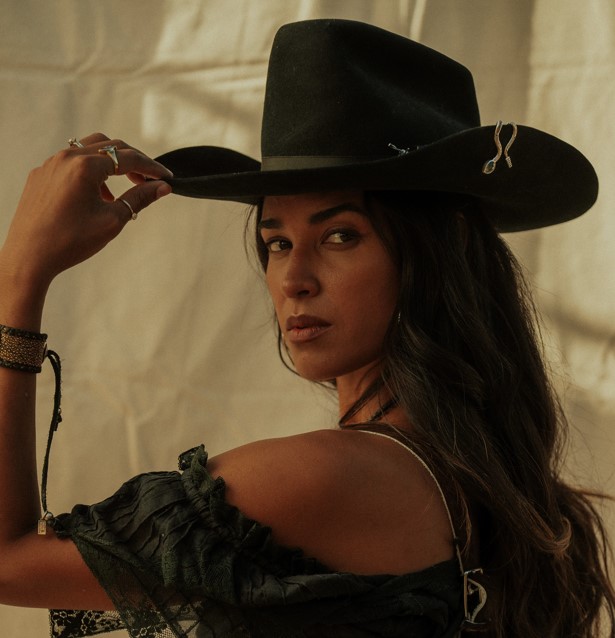MŌRIAH never thought her family was unique. She grew up in a Mexican-American household in Chino, California, where mariachi bands played at their gatherings, and the family had quinquennia’s when girls turned 15.
MŌRIAH celebrates her heritage in her work as an actress, producer (music and film), recording artist, and songwriter. "Hasta Manana," the first track from her forthcoming Latin Country LP, was released in English on October 4 and in Spanish on November 1.
She's using her art to bolster her culture, but she didn't know it was culture growing up. She just thought it was ordinary life. "I didn't think it was unique or interesting that we had parties the way we did," she said. "That's just what you do. I never thought the foods we made were special because it is just all there's ever been. It's like asking a fish how it feels about water."
But MŌRIAH was different. A kind spirit with tan skin, curly dark hair, and almond eyes, she was bullied in school. Then she came home, turned on CMT (Country Music Television), and felt an instant connection to the songs and places depicted in the videos. They didn't look like the concrete where she lived. The landscape and lyrics in the clips often mimicked her extended family's lifestyle in Texas.
MŌRIAH spent every summer in El Paso, and her fondest memories are of riding in the back of her grandparents' pickup truck with her cousins.
"We were crammed in there," she said. "The heat and the warmth and the family and the dry air and the music and the drinking and the partying and the late nights, it all, to me, that was a world that was all the same. It was like the country music videos, and my family in Texas, that was all the same thing to me."
Through her upcoming Latin country EP, MŌRIAH wants to invite people into her culture – into her family – and show them that a border is only a line in the sand. Her roots are in California. Mexican culture is in her blood. Tennessee - and the country community - is her home.
"It's all just very intricately connected," she said. "I'm doing this because there's a cultural moment, responsibility, and opportunity to bring people together when everything else is dividing us. Music is this unique way of putting a bunch of people who are super different in the same space, having them all synchronized, saying the same thing, and singing the same thing. That's healing."
She blended the cultures as she does in her life when she recorded "Hasta Manana." As an artist and producer, she hears the music before she listens to the words. "Hasta Manana" marries the distinctly dusty tones of a Juarez, Mexico, Mariachi band with Nashville's finest contemporary country players.
Early in the process, she and her producer Paul Mabury (Lauren Daigle), shared demos with a mariachi arranger in El Paso. He said: "Country is the folk of America. Mariachi is the folk of Mexico. You've found the bridge. And the bridge isn't as long as you might think!"
When she hears the song, MŌRIAH immediately thinks of the Juarez mariachi musicians she and Mabury tracked in El Paso. They paid them in pesos and had to smuggle their instruments in at night. But Nashville's session musicians are equally important to the track.
"Even though these guys were never in the same room sonically, it's the perfect example of how we literally just brought two worlds together," MŌRIAH said.
She opted for two versions of "Hasta Manana" – an English and a Spanish - because she realized that while American country music embraced the English version, her potential Spanish-speaking audience might never hear it. She recorded her new Spanish version of "Hasta Mañana" for them.
"It's just one more way to bring people together," she said. "There's such power to language. I think that when you start to speak another person's language, it's the beginning of getting into their shoes; it's the beginning of empathy."
As is customary in the Mexican community, MŌRIAH isn't asking for anything from people through her music. She only wants to promote understanding and bring people together.
"I want to give to this culture in the same way that every time my family had a party with, especially my grandma, she immediately started calling my friends like, 'Oh, you're my granddaughter,'" she said. "'You put on that folklorico and do a folklorico dance. I don't care that you're Filipino.'"


